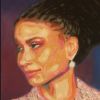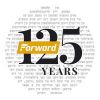8 Best-Selling Political Freedom Books Millions Love
Top recommendations from historian Tom Holland, commentator Francis Leach, and Professor Daniel W. Drezner offer proven insights into Political Freedom.





There's something special about books that both critics and crowds love, especially when it comes to political freedom — a topic that shapes the very core of our societies. Millions have turned to these expert-recommended titles to better understand the forces that protect or threaten liberty today. Political freedom remains urgent as debates over democracy, authority, and individual rights ripple through every corner of the world.
Experts like Tom Holland, a historian known for his vivid narratives and deep insights, and Francis Leach, a commentator who calls these works "essential reading," have guided many toward these books. Meanwhile, Professor Daniel W. Drezner highlights how history's lessons remain relevant, helping readers recognize authoritarian tactics and defend democratic institutions.
While these popular books provide proven frameworks, readers seeking content tailored to their specific Political Freedom needs might consider creating a personalized Political Freedom book that combines these validated approaches into a custom reading experience just for you.
Recommended by Tom Holland
Historian and author
“"There isn’t a page of this magnificent book that does not contain some fascinating detail and the narrative is held together with a novelist’s eye for character and theme." #Dominion” (from X)
by Timothy Snyder··You?
by Timothy Snyder··You?
What if everything you thought about resisting authoritarianism needed a sharper lens? Timothy Snyder, a Yale historian deeply versed in twentieth-century totalitarian regimes, offers twenty concise but potent lessons drawn from Europe’s darkest hours. You’ll find clear warnings and practical mindsets for recognizing and opposing threats to democratic norms, such as the dangers of propaganda and the importance of preserving institutions. Chapters like “Defend institutions” and “Establish a private life” provide concrete insights that anyone concerned with the fragility of freedom can apply. This slim volume suits you especially if you want to understand how history’s warnings remain urgent today.
by Philippe Van Parijs·You?
by Philippe Van Parijs·You?
Philippe Van Parijs's extensive background in political philosophy led him to challenge the apparent contradiction between freedom and inequality in capitalist societies. You explore a nuanced argument that neither traditional socialism nor conventional capitalism fully addresses justice, instead encountering a proposal for an unconditional basic income as a pathway to real freedom. The book delves into how this alternative vision reshapes our understanding of freedom and equality, supported by thorough policy implications that provoke fresh thinking about welfare states. If you're grappling with how to reconcile liberty and social justice in modern economies, this book offers a thoughtful, well-argued perspective that invites you to reconsider accepted norms.
by TailoredRead AI·
by TailoredRead AI·
This tailored book explores battle-tested methods to safeguard political freedom by focusing on your unique interests and goals. It examines key concepts such as democratic resilience, civil liberties, and strategic civic engagement, blending widely validated knowledge with insights personalized to your background. By concentrating on the specific challenges you face, it reveals how political freedoms can be effectively protected and promoted in diverse contexts. This personalized approach helps you navigate complex political landscapes with confidence, addressing the nuances of authority, rights, and governance that matter most to you. The result is a focused, engaging journey through the principles and practices that uphold liberty in today’s world.
by Alexander Meiklejohn·You?
by Alexander Meiklejohn·You?
When Alexander Meiklejohn wrote this book, he was deeply engaged with the idea that political freedom is fundamentally about the power people hold within their constitutional framework. The book explores how governing is a choice made collectively, dissecting the constitutional powers that enable or restrict popular sovereignty. You’ll find a nuanced analysis of how these powers interact with democratic principles, highlighting the tension between authority and liberty. This book is especially useful if you want to understand the philosophical and legal foundations of political freedom from a mid-20th century perspective, though it assumes a willingness to grapple with complex ideas rather than quick answers.
by Philip Pettit·You?
by Philip Pettit·You?
Philip Pettit's examination of republicanism redefines freedom not as mere non-interference but as non-domination, a concept that challenges traditional liberal and communitarian perspectives. You dive into a nuanced exploration of how freedom can be understood and protected through democratic mechanisms that emphasize ongoing contestation and trust between government and society. The book lays out concrete implications for policy-making, constitutional design, and the relationship between the state and civil society, especially in its second half. If you're interested in the foundations of political freedom and its practical applications within democratic governance, this book offers a thoughtful and rigorous framework to deepen your understanding.
by John Stuart Mill·You?
by John Stuart Mill·You?
Start with why millions of readers have chosen this book: John Stuart Mill's "On Liberty" remains a foundational text in political thought, exploring the delicate balance between individual freedom and societal control. Mill, a philosopher deeply influenced by utilitarianism, argues for protecting personal autonomy while recognizing the limits necessary to prevent harm to others. You’ll find chapters dissecting the "harm principle," where the focus is on when society can justifiably restrict liberty, and discussions on free speech that still resonate today. This book suits anyone curious about the roots of liberalism and the ethical questions surrounding freedom in democratic societies, though it demands careful reading rather than quick answers.
by TailoredRead AI·
by TailoredRead AI·
This tailored book explores political freedom through a focused, accelerated 30-day plan designed to deepen your understanding while matching your unique background and interests. It examines core principles of liberty and democratic values, guiding you step-by-step to grasp essential concepts and their real-world applications. By centering on your specific goals, it reveals how political freedom unfolds in various contexts and empowers you to recognize and engage with critical issues effectively. This personalized approach ensures the content resonates with your prior knowledge and focuses on the aspects you find most impactful, making your learning journey both engaging and relevant.
by George W. Carey·You?
by George W. Carey·You?
What if everything you thought about the conservative and libertarian divide was incomplete? George W. Carey, drawing from extensive engagement with American political philosophy, lays out a nuanced examination of the ideological tensions that define these two traditions. You’ll gain clarity on how concepts of liberty and morality intersect, often clash, and influence contemporary political debates. The book's detailed discussions, such as the differing views on individual virtue and social order, offer a framework to understand current political dynamics more deeply. If you’re grappling with the philosophical roots behind modern political conflicts, this book provides a thoughtful lens rather than easy answers.
by George Lakoff·You?
by George Lakoff·You?
Drawing from his experience as a Democratic Party adviser, George Lakoff dissects how the concept of freedom has been strategically reshaped by conservative forces since 9/11. You gain insight into the ideological reframing that has turned freedom into a political weapon, influencing policies from national security to social issues like abortion and education. The book challenges you to understand the language and narratives that have dominated political discourse, especially how progressives have struggled to respond effectively. If you’re interested in American politics and want to grasp the contested meanings behind freedom, Lakoff’s analysis offers a clear lens to navigate these debates.
by Jean-Jacques Rousseau·You?
by Jean-Jacques Rousseau·You?
Jean-Jacques Rousseau challenges the conventional wisdom that political authority is inherently just by arguing that true freedom is compromised by societal structures. In "The Social Contract," he explores the idea that individuals are born free but find themselves constrained by governments and institutions, proposing principles aimed at restoring political rights and collective sovereignty. You’ll gain insight into the foundations of modern political theory, including concepts like the general will and popular sovereignty, which continue to influence debates on governance and liberty. This book suits anyone interested in political philosophy, social justice, or the roots of democratic thought, offering a concise yet profound examination of freedom’s tension with authority.
Proven Political Freedom Methods, Personalized ✨
Get expert-backed Political Freedom strategies tailored to your unique goals and challenges.
Validated by top experts and thousands of engaged readers
Conclusion
These eight books collectively reveal enduring themes: the necessity of vigilance against authoritarianism, the complex balance between individual liberty and societal order, and the evolving discourse around freedom's meaning in democracy. If you prefer proven methods to understand political threats and protections, start with Timothy Snyder's On Tyranny and John Stuart Mill's On Liberty. For validated approaches to the philosophical foundations, combine Rousseau's The Social Contract with Pettit's Republicanism.
Each book offers a distinct lens on freedom, but if you want a reading experience shaped by your unique background and goals, you can create a personalized Political Freedom book to blend these proven methods with your specific interests. These widely-adopted approaches have helped many readers navigate the complexities of political freedom and are ready to do the same for you.
Frequently Asked Questions
I'm overwhelmed by choice – which book should I start with?
Start with On Tyranny by Timothy Snyder. It offers clear, actionable lessons on spotting threats to democracy, making it accessible and urgent for newcomers to political freedom.
Are these books too advanced for someone new to Political Freedom?
Not at all. While some explore deep theory, books like On Tyranny and On Liberty provide approachable entry points that explain key concepts without jargon.
What’s the best order to read these books?
Begin with On Tyranny for contemporary context, then move to classics like On Liberty and The Social Contract to understand foundational ideas. Finish with Republicanism for advanced theory.
Should I start with the newest book or a classic?
A mix works best. Newer books like On Tyranny address urgent modern issues, while classics like On Liberty provide timeless perspectives essential for deeper understanding.
Do I really need to read all of these, or can I just pick one?
You can pick one, but each offers unique insights. Combining a contemporary analysis with a classic philosophy book gives a richer view of political freedom.
How can I get personalized political freedom insights without reading multiple full books?
Great question! While expert books offer valuable insights, a personalized Political Freedom book can combine these proven ideas tailored to your needs. Explore customizing your book here for focused learning.
📚 Love this book list?
Help fellow book lovers discover great books, share this curated list with others!
Related Articles You May Like
Explore more curated book recommendations







